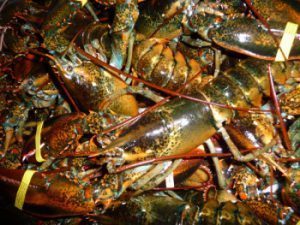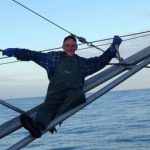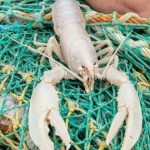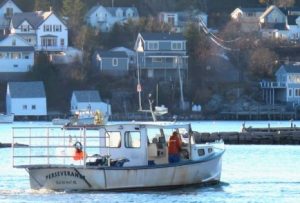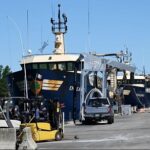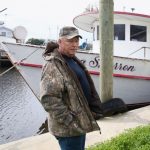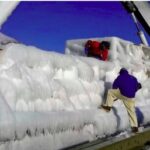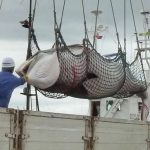Daily Archives: August 20, 2018

Why fisheries management is plagued by the panacea mindset
Fisheries management has often been characterized by regulatory policies that result in panaceas—broad based policy solutions that are expected to address several problems, which result in unintended consequences. An international research team shows how one size fits all policies like individual transferable quotas may be doomed from the onset, as these policies perpetuate “the panacea mindset.” The team calls for a more customized policy approach in a new piece in the Proceedings of the National Academy of Sciences. >click to read< 20:39
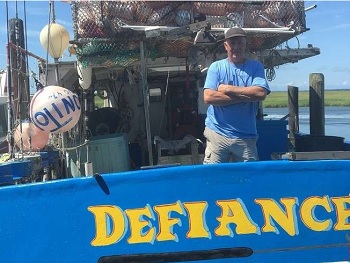
This Summer Seafood Shack Isn’t Your Everyday Jersey Shore Restaurant
It’s Fourth of July, and Bill Bright, a 60-year-old commercial fisherman who owns the best seafood restaurant between Atlantic City and Cape May, hopes nobody wants to buy crabs today. Bright looks like Joe Biden’s outdoorsy younger brother and runs Hooked-Up Seafood in Wildwood, the southernmost barrier island of the Jersey Shore, with his wife, Michelle, and four kids.,, Bright’s boats, Retriever and Defiance, run up and down the coast from Virginia to Long Island, fishing off the continental shelf. Whatever they catch winds up on the menu at Hooked-Up: yellowfin and big-eye tunas, mahi, swordfish, once in a while some prized John Dory. Fueled by word of mouth and devoted repeat business, Hooked-Up has blossomed over the last nine seasons into the place in-the-know locals go for seafood.> click to read<16:30
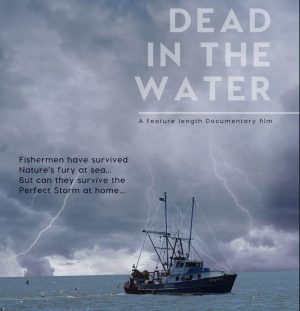
New Hampshire: Watch Dead In The Water, showing in Portsmouth tomorrow night
DITW film in New Hampshire this Tuesday evening at 7:00 pm at the 3SArtspace in Portsmouth, NH. Admission is $15 there will be a Q&A afterwards with the few New Hampshire fishermen that are left. 14:21
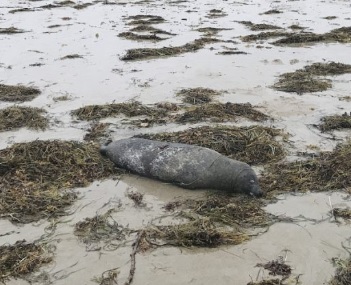
Decades of chemical pollution suspected in Maine’s seal die-off
As the number of dead and stranded seals washing up on southern Maine beaches rises by the day, researchers are linking the sudden die-off to decades of chemical pollution that made the seal population vulnerable to toxins and disease.,,, In the past week, volunteers responded to 100 dead seals on Maine beaches south of Portland and in Casco Bay, said Lynda Doughty, the group’s executive director. The phone has been ringing off the hook, and on Friday afternoon volunteers were clearing a backlog of animal reports. Rescuers reported 179 dead seals in Maine since the beginning of July and another 51 dead in New Hampshire, according to the agency>click to read<13:44
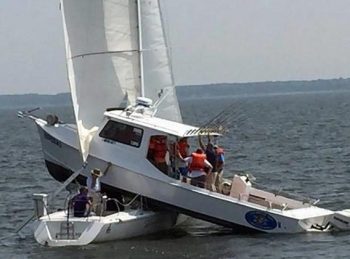
You Don’t See This Everyday
It was a stunning visual – a powerboat sitting on top a J/105 while out on the Chesapeake Bay. This was the result of a violent collision in which, thankfully, no one was hurt. It was August 17 when the two boats were off the shore of Thomas Point Park when the commercial boat, part of a charter service, and a J/105 sailboat belonging to the Chesapeake Boating Club in Eastport, collided. There were nine people aboard the boats – 2 on the J/105 and 7 on the powerboat. The boats were perpendicularly stacked until emergency personnel arrived in the early afternoon and separated them and towed both to shore. Photos >click to read<12:17
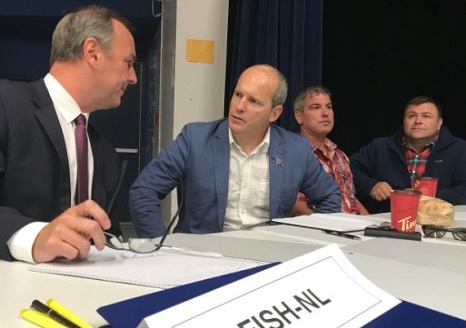
Today: FISH-NL appears before labour board as it attempts to be a certified union
The Federation of Independent Seafood Harvesters (FISH-NL) is appearing before the provincial labour relations board Monday, in a hearing to determine who should qualify as an inshore harvester. It’s part of FISH-NL’s push to become a certified union for inshore fishers in Newfoundland and Labrador. FISH-NL’s hearing will be part of determining exactly who is considered an inshore harvester, as FISH-NL and the Fish, Food and Allied Workers Union (FFAW) are in a dispute about who qualifies. >click to read<10:09
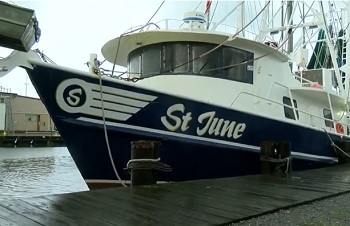
Shrimpin ain’t easy, but shrimpers finding ways to navigate 30 yr low prices
Shrimpers across the state have been complaining about foreign imports that are driving prices to a thirty year low. Shrimpers with larger boats say they’re aiming for higher quantities to unload at processing plants on the Gulf Coast, while shrimpers with smaller boats are trying to build networks in communities by selling directly to the public. “With a bigger boat you can chase bigger shrimp to get more money for them. There’s nothing but little shrimp closer to land, the beach where the small boats gotta stay. I mean it’s all they can do really,” said Marty LeBlanc. >click to read<09:26






